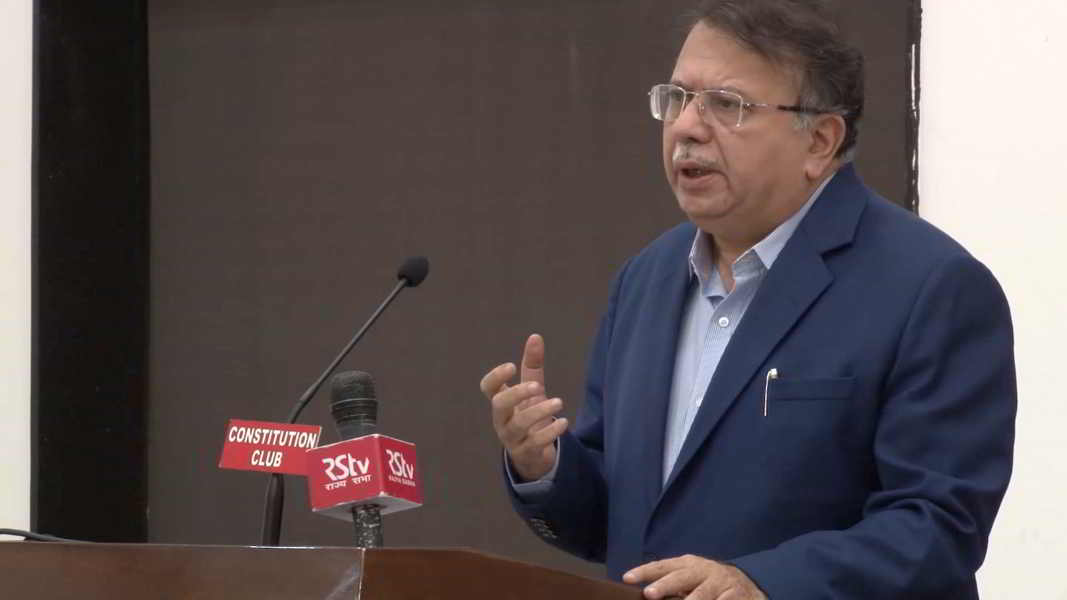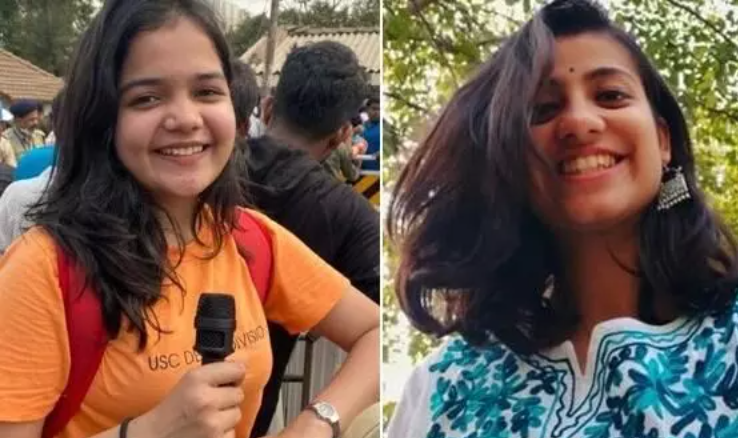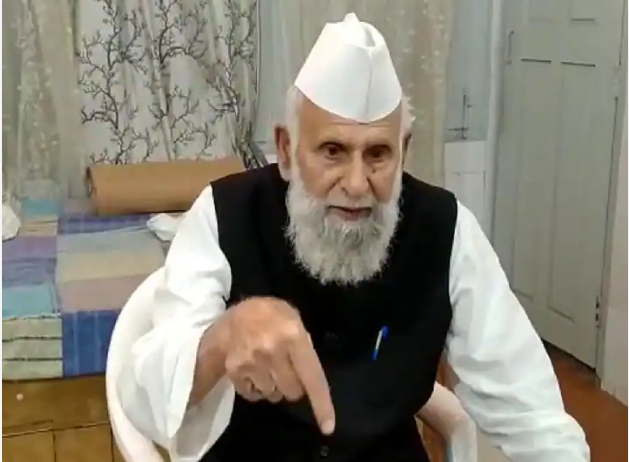[vc_row][vc_column][vc_column_text]In his lecture on nationalism, he was critical of the apex court’s judgements and upheld freedom of speech
By Sucheta Dasgupta
Former Delhi High Court chief justice Ajit Prakash Shah has provided a whole lot of constructive criticism for the Indian judiciary. Speaking at the MN Roy Memorial Lecture last week, Justice Shah (retired) looked critically into two Supreme Court judgments, one Supreme Court decision, one High Court order, a law and the demand for one made by a leading public figure.
Justice Shah criticized the Supreme Court’s decision to uphold the constitutionality of criminal defamation in Subramaniam Swamy vs UOI case in May 2016. Congress vice-president Rahul Gandhi, Delhi Chief Minister Arvind Kejriwal and BJP leader Subramanian Swamy had challenged the constitutional validity of sections 499 and 500 of the Indian Penal Code, providing for criminal defamation. “Right to free speech is not absolute. It does not mean freedom to hurt another’s reputation which is protected under Article 21 of the Constitution,” the Supreme Court had ruled.
Known for his bold judgements, especially the one which decriminalised homosexuality in 2009, the ex-judge, who retired in 2010, also slammed the top court’s November 2016 order directing all cinema halls across India to play the national anthem before the start of a film, and requiring the audience to stand up as a “show of respect”. “The order of the Court, which seems a little short on reasoning to help understand how such an interim order was passed, befuddles and seems contrary to the spirit of the Constitution and past precedent, Bijoe Emanuel [in this historic 1986 case, a family of Jehovah’s Witnesses won the permission not to sing the national anthem in school, arguing that the act violated their right to worship] which made it clear that we cannot be forced to sing the anthem. It is important to remember that the right to free speech and expression also includes the right not to speak or express ourselves,” Justice Shah explained. “However, under the guise of ‘law’, the Court has now stepped in and restricted our fundamental rights,” he said, adding: “The order may have ensured that cinema audiences throughout are now standing before the national anthem plays, but what the Court fails to have realised is that such an action is a performance, motivated by fear of being beaten up, rather than genuine respect and love for the anthem. In the end, it has actually undermined patriotism amongst fellow Indians”.
Next in his line of fire was the apex court’s decision in March to examine Azam Khan’s statement (that the Bulandhshahr gang-rape, of a woman and a minor, was an “opposition conspiracy”) in the light of the question that it itself raised— whether or not the right to free speech under Article 19(1)(a) is to be controlled singularly by the language under Article 19(2) or it is also impacted by the right to life and personal liberty under Article 21 of the Constitution. Outrageous as Khan’s comment is, for which he later apologised—and the Supreme Court rejected his apology—Justice Shah rightly pointed out that the answer to the aforesaid question may “have a profound impact in restricting the scope of Article 19(1)(a) and undermine our constitutionally guaranteed [fundamental] right”. Besides, he argued, how can one fundamental right be conditional to another one? After all, the remedy of all crises arising out of free speech is more free speech, and everyone is entitled to their opinion, however worthless or malformed those may be.
But, even the Bombay High Court has on occasion failed to protect the right to free speech, Justice Shah said. “Recently [February], it constituted a three-member committee (comprising two lawyers) to give a report on the scenes in the movie Jolly LLB-2 it found ‘objectionable’, because it was prima facie of the view that certain scenes—those involving a cowering judge and some dialogue between the lawyers—were in contempt of the judiciary and the legal profession. Mind you, this was a movie where the CBFC, i.e. the Censor Board, has given the requisite certification for its release. It was also a case where the High Court entertained the writ petition (later converted to a PIL) based only on two trailers and some photographs. The Bombay High Court’s order [directing deletion of four scenes from the film], the report of the three-member ‘committee’, and the proximity of the release date, essentially forced the producers and director of the movie to ‘compromise’ and undertake to make the requisite modifications and deletions to the objectionable scenes,” he maintained.
Justice Shah made a cogent argument for repeal of Section 124-A of the Indian Penal Code, infamous as the sedition law. He reminded his audience of the history of the law, introduced by the British to crush dissent by our freedom fighters. He drew his listeners’ attention to the fact that the United Kingdom, from which India inherited it, has abolished it in 2009. Citing the Supreme Court’s judgement in the 1962 Kedarnath Singh vs State of Bihar case, wherein it limited the application of the law to “acts involving intention or tendency to create disorder, or disturbance of law and order, or incitement to violence”, he said it had been inappropriate to view the JNU sloganeering incident in the same light. Nevertheless, he said, the broad scope of the law “allows it to be used by the state to go after those who challenge its power—whether it is the JNU students, activists such as Hardik Patel and Binayak Sen, authors such as Arundhati Roy, cartoonists such as Aseem Trivedi, or the villagers of Idinthakarai in Tamil Nadu protesting against the Kudankulam nuclear power plant”. Sedition charges seldom stick, but the harassment they cause is immense, he said, completing his argument.
Finally, Justice Shah called for a unanimous rejection by citizens of RSS chief Mohan Bhagwat’s demand for a national law against cow slaughter. “Preventing people from eating the food they want and effectively forcing a life choice on them undermines any feelings of nationalism and unity… We must be wary of forcing a single ideology or way of living on the entire country, especially a country as diverse as India, where states such as Kerala or the various states in the northeast consider beef a staple part of their diet. One reads multiple reports about slaughterhouse crackdowns in UP, crackdowns that are primarily targeted at Muslim butchers, leaving lakhs of people with fear, but without stable employment. We also recently had the horrific incident in Una where seven Dalits were beaten by cow-vigilantes for alleged cow slaughter. And how can we forget the lynching of Akhlaq, who was suspected for allegedly storing and consuming beef, but where the first thing that was sent for forensic examination was not his body, but the food that is in the fridge. Is this what the value of human life comes to?” Justice Shah said, reminding his audience that “only free souls can create abiding cultural values; they may physically belong to one particular class or geographically to a particular country; spiritually, they transcend all social and territorial limitations”.[/vc_column_text][/vc_column][/vc_row]


 India News19 hours ago
India News19 hours ago
 India News18 hours ago
India News18 hours ago
 India News9 hours ago
India News9 hours ago
 Cricket news9 hours ago
Cricket news9 hours ago
 India News8 hours ago
India News8 hours ago









